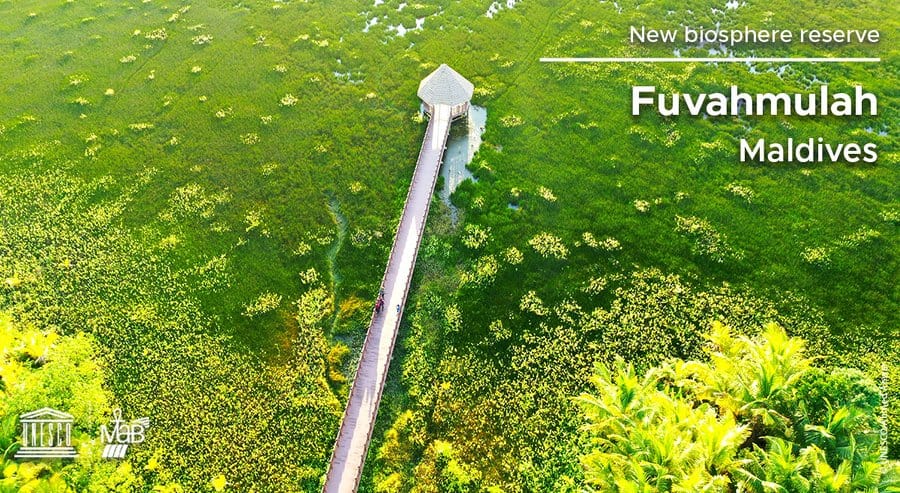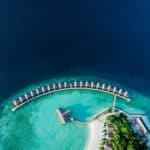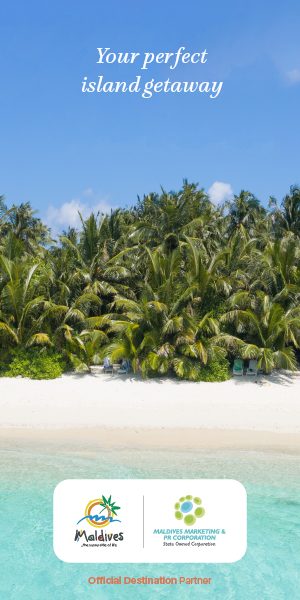On 28 October 2020, UNESCO’s Man and the Biosphere (MAB) program has included Fuvahmulah and Addu Atoll in the Maldives, to UNESCO’s World Network of Biosphere Reserves. This is to be the second and third entry for the Maldives, after the Baa Atoll.
Biosphere reserves are sites for testing interdisciplinary approaches to understanding and managing changes and interactions between social and ecological systems, including conflict prevention and management of biodiversity.
Fuvahmulah, the only atoll that is one whole island and the third-largest natural island in the Maldives, has many natural habitats, from tropical woodlands and wetlands to vegetated marshland areas, white sand beaches with clear blue waters, freshwater lakes, and many fertile lands. Along with two lakes, numerous swamps, and marshlands throughout the island, it possesses a variety of plant and water animal species not seen in any other island in the archipelago.
To encourage ecotourism, nature parks were recently opened in both Atolls as well. Addu, the relatively large Atoll, holds two resorts which are the Canareef Resort Maldives, and Shangri-Las’ Villingili Resort and Spa for tourists to unwind and enjoy the natural beauty of the island.
UNESCO biosphere reserves seek to reconcile human activity with the conservation and sustainable use of biodiversity. They are a central element of UNESCO’s research and awareness-raising work to foster innovative sustainable development practices and combat the loss of biodiversity supporting communities and Member States’ understanding, valuing, and safeguard the living environment.
New biosphere reserves are designated every year by the MAB program’s governing body, the International Co-ordinating Council which has a rotating elected membership of 34 UNESCO Member States.
We have a newly designated @unesco_mab #BiosphereReserve: Fuvahmulah, #Maldives. Congrats! 👏😃
— UNESCO (@UNESCO) October 28, 2020
Learn more about #BiosphereReserves: https://t.co/UzIEVb1EZs pic.twitter.com/MaQIoWSknK




